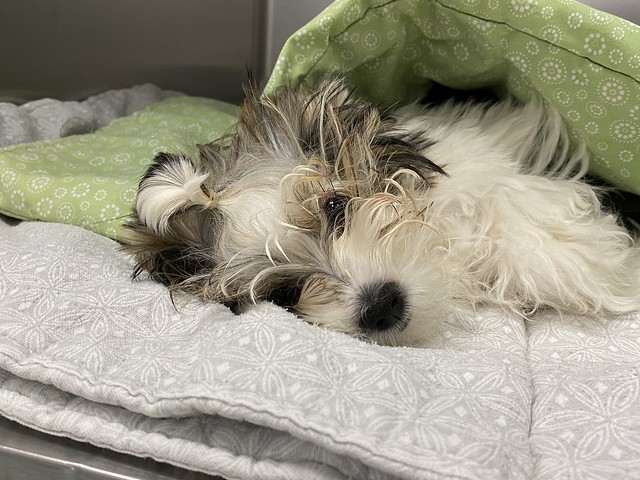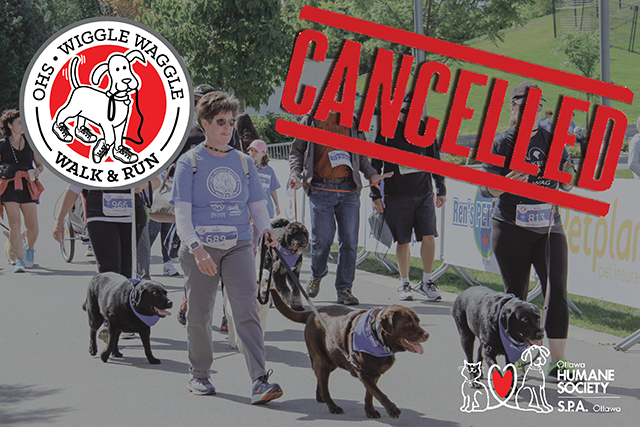|
Advocating for animals during COVID-19... read more |
|||
| If you do not see the full page with images, please click here. | |||
|
Cats Belong Indoors |
|||
|
Unless in an enclosed catio or on a leash and harness with her owner, cats should be kept safely indoors. It is to the cat's benefit, her owner's benefit and the local ecosystem's benefit. By the numbers and research, it doesn't make sense to allow domestic cats to roam unsupervised. In 2013, a study estimated that in Canada, free-roaming cats kill between 100 to 350 million birds annually. This number does not account for birds that are injured by cats and brought to veterinary clinics, wildlife centres and humane societies for treatment. Decimation of wild animal populations aside, the outdoors poses many threats to a domestic cat allowed to roam. Traffic, disease, predation by wildlife and conflicts with humans are only a few of the dangers a cat could encounter. Studies show that for feline deaths caused by trauma, the majority can be attributed to vehicular collisions. Research also shows that cats allowed outdoors are almost three times more likely to be infected by a parasite than indoor cats. As well, cats with outdoor access are more likely to develop feline immunodeficiency virus and feline leukemia virus. In a study by University of California Davis, it was found that an indoor cat's average life expectancy is 12 to 15 years while the average cat allowed outside can only expect two to five years. If the safety of a cat and local wildlife wasn't enough reason to keep a cat indoors, an outdoor cat also poses a huge risk to her owner's wallet. Treatment for ingestion of a foreign body can cost just shy of $3,000 and the cost of treatment for a pet whose pelvis was fractured after being hit by a car can cost more than $3,500. Some might argue that cats need to go outdoors to live happy lives and experience natural behaviours, but a cat can experience all of this while living indoors. Providing toys and food puzzles, perches to climb and rest on, and regular play time with her owners can give a cat everything she needs to live a happy, indoor life. As well, the outdoors are not off-limits for cats as they can enjoy the outdoors safely on a leash and harness with their owners or in the safety of a catio. The scales are dramatically tipped against allowing domestic cats to roam freely outdoors. The evidence points towards one conclusion: the safest place for a cat is indoors. Help keep cats safe by sharing this important message today. |
|||
|
Become a Foster Volunteer |
|||
|
Since 1983, the OHS foster program has been sending animals in need of medical and behavioural care into foster volunteers' loving homes. In the beginning, the program focused on helping vulnerable kittens, puppies and animals recovering from medical conditions. Thanks to hundreds of caring volunteers, the program has expanded its horizons to help many more animals get a second chance at a bright and healthy future. The OHS learned a lot from the ongoing public health crisis. One important lesson learned was how animals are best served in foster care. Growing the foster volunteer team is crucial and means even more animals can receive the extra attention they desperately need. The OHS provides all of the tools and training to foster volunteers. Foster volunteers only need to give their time to save vulnerable animals. If you have the time and are up for a rewarding challenge, become a foster volunteer and start saving lives. |
|||
|
The Case for a Coyote as the Cat Killer |
|||
|
This summer's reports of deceased cats were unsettling to the OHS and the community. The Ottawa Police Service conducted an investigation into the deceased cats and found that the cause of death was a wild animal, likely a coyote. Despite this conclusion, persistent theories have abounded that the killer was human. In the face of compelling evidence, the OHS believes that the perpetrator was a coyote or coyotes. Here is the case: 1. A veterinary pathologist from Guelph University concluded so. The Ottawa Police Service had a necropsy performed at the Kemptville campus of Guelph University. The veterinary pathologist performing the analysis concluded that the one cat had died as a result of a predator attack — most likely a coyote — and that the state of the other bodies were consistent with the same conclusion. 2. A Canadian research study concluded coyotes were responsible for cat deaths in very similar circumstances in Alberta. A recent Canadian study published in the Journal of Veterinary Pathology mirrored the situation in Ottawa. In strikingly similar circumstances in Edmonton and St. Albert, the study found that: "Among 53 carcasses examined in this study, a majority (68%) could be directly attributed to coyote predation as a cause of death. An additional 15% appeared to be scavenged by coyotes after either being hit by a car or suffering some other trauma. The remaining 17% included pet burials and partial carcasses that had insufficient tissue remaining to determine cause of death. In no case was there any clear evidence of nonaccidental injury by humans... Thus, we conclude that coyote predation and scavenging were responsible for most, if not all, of the cases of dismembered cat remains discovered." The study went on to say: "Cat remains from these events are often brought to the attention of local veterinarians, who may have difficulty diagnosing the cause of death, and to animal control officers and/or police, who need to determine whether or not a crime occurred. In these situations, laymen often describe injuries to cats with phrases like "scalpel-like cuts" and "laser edges." Once in the media, reports proliferate with ensuing speculation about possible human involvement in mutilating cats." 3. Cat deaths are very common in the Ottawa region. This summer's spate of cat killings may seem unusual, when in fact, it's not. The Ottawa Valley Lost Pet Network have had 690 cats found dead reported to them since January 2019. In the same period, 92 bodies have been brought to the OHS. Between the two, that's almost one every day, and that surely doesn't represent all the cats killed in the region. 4. Coyotes have become common in urban settings, including Ottawa. Coyotes are frequently found in urban settings. In June 2020, there were coyote attacks on humans in Riverside South. 5. The notes came late to the puzzle. The news of the deceased cats was covered widely in the media by June 15, and the notes were not discovered until June 19. It is likely the notes were a bi-product of someone playing a terrible joke for the shock value. As well, in a letter to the editor in the Ottawa Citizen, a Barrhaven resident provided a recent, first-hand account of a coyote preying on a cat. At the end of the day, the cats in Ottawa suffered horrendous deaths, and the solution is the same: cats should be kept safely indoors. |
|||
|
Buddy & Belle: Sunny |
|||
|
Meet Sunny, a sweet five-month-old Yorkshire terrier puppy, who arrived at the OHS in need of immediate medical care. Despite her cheerful name, Sunny had a big problem. Her leg was broken with a very serious fracture. |
|||
|
More Ways to Help the Animals |
|||
|
In the interest of safety, the OHS has made the decision to cancel this year's annual Wiggle Waggle Walk and Run. However, there are still many ways you can help Ottawa's animals! Consider buying tickets for an OHS lottery, hosting a community event for the animals, purchasing gifts for Ottawa's animals or making a simple donation. All of these can go a long way toward helping animals in need. |
|||
| Thank you to our sponsors: | |||
|
|
|||
| Ottawa Humane Society 245 West Hunt Club Rd, Ottawa, ON K2E 1A6 donations@ottawahumane.ca | www.ottawahumane.ca |
|||
|
|
|||
|
The Standards Program Trustmark is a mark of Imagine Canada used under licence by the Ottawa Humane Society. The Humane Canada Accreditation Program mark is a licensed mark of Humane Canada used under licence by the Ottawa Humane Society. |
|||
| Privacy Statement Manage your Email Preferences |










